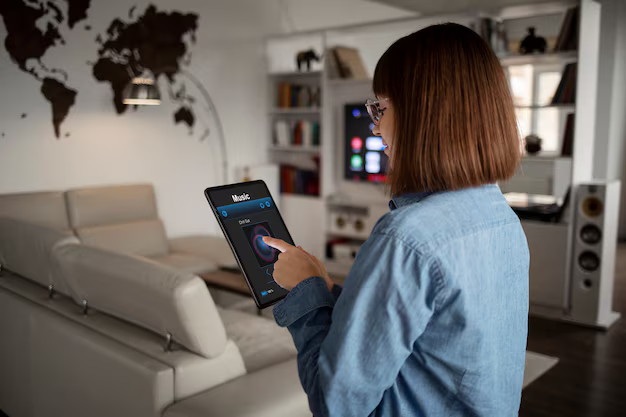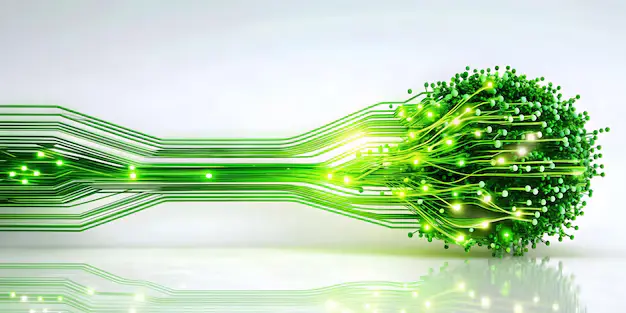
-
Apexlink
Real Estate
-
DLS
General Insurance
-
DMV
Government
-
Entiger
Fintech
-
GIS Mapping
Gas & Petroleum
-
HMS
Employee Benefit
-
HAWA
Government
-
Harley
Community
-
IHG
Hotel & Tourism
-
Sparkseeker
Humane Tech
-
Track Ninja
Sports
-
Response Vision
Disaster Management
- Artificial Intelligence
- Application Services
- Automation Services
- Cyber Security
- Chatbot Experts
- Data Analysis
- Data Warehouse Services
- Machine Learning
- Digital Commerce Services
- Digital Transformation
- Infrastructure Service
- IT Support
- IT Consulting
- IT Outsourcing
- IOS Development
- Android Development
-
Cross Platform Development
-
Gaming App Development
Thanks to the coming-of-age AI-driven solutions, the hospitality industry is no stranger to innovation. There are tools that can be integrated with the existing processes in this domain for more streamlined operations, enhanced guest experiences, and better optimized efficiency. From customer service to revenue management, there are several facets of the hospitality industry which are being influenced by artificial intelligence services, and ultimately, transforming the way hospitality businesses operate.
With several years of experience in software development, Seasia Infotech has empowered hundreds of businesses in the hospitality industry by integrating AI technology and helped them stay ahead of the competition.
Now, let’s dive deeper into the top 12 use cases of AI in hospitality, highlighting the impact of artificial intelligence solutions on guest services, management practices, and more.
Personalized Guest Experiences
AI in hospitality enables hotels to deliver hyper-personalized guest experiences. It does so by analyzing guest behavior, preferences, and other applicable data. From recommending local experiences to remembering room preferences and dietary restrictions, Artificial intelligence solutions can help personalize pretty much every interaction. By allowing hotels to offer tailored services and exclusive packages based on factors like previous stays, feedback, and booking habits, hospitality artificial intelligence takes a lot of hassle out of the process. We have plenty of experience designing AI-powered personalization engines that will ensure you create lasting guest memories while driving customer loyalty.
AI-Powered Chatbots & Virtual Assistants
AI chatbots for the hospitality industry have altered customer service for the better by providing instant, 24/7 assistance for booking inquiries, room service requests, check-ins and check-outs, or even local recommendations. On top of that, these chatbots can handle multiple languages, respond instantly, and reduce the burden on human staff during buy periods. If you want to build a more advanced facility, Chatbot Experts can help you install virtual assistants in hotel rooms that allow guests to control room settings, make service requests, and get assistance – all via voice commands.

Dynamic Pricing & Revenue Management
Our hospitality IT consulting services can help you develop AI-driven dynamic pricing models that can analyze historical data, current trends, local events, and competitive pricing to offer real-time price adjustments. This can help your hospitality business optimize room rates and increase revenue by charging the right price at the right time to ensure maximum occupancy and profitability during peak and off-peak seasons.
Smart Room Technology

The modern guest won’t settle for a stay that isn’t smart or seamless. AI has made it possible for the hospitality industry to develop smart rooms where guests are in complete control of room temperature, lighting, curtains, and entertainment systems through voice-activated assistants or smartphone apps. These rooms create a unique, tech-savvy experience that attracts tech enthusiasts and business travelers alike. We can combine AI, IoT, automation, and cutting-edge technology for you to deliver an unmatched guest experience.
Predictive Maintenance for Hotel Equipment
Predictive maintenance uses artificial intelligence solutions to monitor the health of most-used hotel equipment like elevators, HVAC systems, and lighting. These AI systems are good at predicting equipment failures before they happen by analyzing historical performance data. Predictive maintenance, thus, is a proactive approach that reduces costs and downtime, improves efficiency, and ensures guests are not even slightly inconvenienced.
Guest Sentiment Analysis Through AI
Artificial intelligence services help hotels analyze customer feedback, whether it’s through reviews, social media comments, or surveys. By using NLP, AI tools can accurately assess guest sentiment, identify patterns, and even suggest areas for improvement. Additionally, sentiment analysis can play a critical role in highlighting service strengths, enabling hotels to refine their offerings and marketing strategies based on real-time data. Seasia Infotech has developed an in-house sentiment analysis tool that can help hospitality brands with understanding and acting on guest feedback.
Advanced Security with AI
Guest safety is among the top concerns in the hospitality industry. AI strengthens security through technologies like facial recognition and real-time video monitoring. These powerful artificial intelligence solutions detect suspicious activities, track movements, and even identify guests entering restricted areas, providing an additional layer of security for both guests and staff.

Housekeeping Optimization
Housekeeping schedules can be optimized effortlessly by using AI solutions that are adept at analyzing guest preferences, check-in and check-out times, and room occupancy rates. This allows housekeeping teams to focus on cleaning and restocking rooms at the right times for maximum efficiency and reduced overhead costs. Some advanced AI systems can even notify staff when guests leave rooms, aiding timely and unobtrusive cleaning services.
Inventory Management for F&B and Supplies
Managing inventory in restaurants manually can be a real challenge! Enter AI in hospitality. We have AI tools that make inventory management easier by accurately forecasting demand based on factors like seasonal trends, occupancy rates, and upcoming events. By helping reduce food waste, preventing stockouts, and allowing for smarter procurement practices, these systems improve both profitability and sustainability. Hospitality artificial intelligence is a perfect example of the use of technology to improve supply chain.
Seamless Check-in with Facial Recognition
Seamless, contactless check-ins have become a reality, all credits to AI-powered facial recognition technology. Guests can bypass the front desk and head directly to their rooms by simply scanning their faces at designated kiosks or door entry points. This eliminates waiting times, enhances convenience, and adds a layer of security for guests who prefer contactless experiences. Our facial recognition solutions will enable you to provide a smooth, tech-driven check-in process for your guests.
AI-Driven Sustainability & Energy Efficiency Initiatives

The role of AI in improving sustainability in hotels cannot be taken for granted. Smart energy management systems powered by AI analyze data from various sources—such as occupancy rates, weather forecasts, and real-time energy usage—to automatically adjust heating, cooling, and lighting systems. In addition to reducing energy consumption, this also lowers operational costs.

Targeted Marketing & Sales
AI-driven marketing tools allow hospitality brands to create more personalized and targeted campaigns based on a plethora of factors. Artificial intelligence can also automate follow-up emails, cross-sell and upsell offers, and suggest ideal times to promote loyalty programs. These campaigns not only help attract new customers and retain existing ones, but also drive revenue growth. We offer AI-powered marketing automation solutions that promise a better return on your marketing investments.
Final Thoughts
AI in hospitality is far from being just a buzzword. In fact, it has become an essential tool for any business looking to stay competitive in the current tech-driven market. From enhancing guest experiences to optimizing operations, AI has endless possibilities for hoteliers and hospitality brands looking to innovate.
We are proud of being at the forefront of this AI revolution, offering tailored solutions for the unique needs of hospitality businesses. Our expertise in AI and mobile app development can certainly help businesses maximize their operational efficiency with an equal emphasis on enhancing guest satisfaction.

Frequently Asked Questions
How is AI transforming the hotel industry?
AI is transforming the hotel industry by automating tasks such as customer service through chatbots, personalizing guest experiences, optimizing pricing strategies, improving energy efficiency, and enhancing security through facial recognition and predictive maintenance.
What is the best AI for hospitality?
There isn’t a single "best" AI for hospitality, but popular applications include AI chatbots for customer service, dynamic pricing models, smart room technologies, and AI-powered marketing tools. The ideal AI depends on the specific needs of the hospitality business.
How does Hilton use AI?
Hilton uses AI primarily through its chatbot “Connie,” which assists guests with information and recommendations. Additionally, Hilton employs AI for personalized marketing, operational efficiency, and optimizing guest experiences.
What is the downside of AI in the hospitality industry?
The downside of AI in the hospitality industry includes high implementation costs, potential job displacement, data privacy concerns, and the risk of depersonalizing guest interactions if over-reliant on automation.
Who does AI benefit the most?
AI benefits both hotel operators and guests. Operators gain through improved efficiency, cost savings, and better decision-making, while guests enjoy personalized services, faster responses, and enhanced experiences.
What is the future outlook of AI in the hospitality industry?
The future of AI in hospitality looks promising with the market expected to reach a revenue of $383.3 billion in the next six years.







 Artificial Intelligence
Artificial Intelligence
 Blockchain
Blockchain Cloud Computing
Cloud Computing Infrastructure
Services
Infrastructure
Services Metaverse
Metaverse QA
Automation
QA
Automation UI/UX
UI/UX







